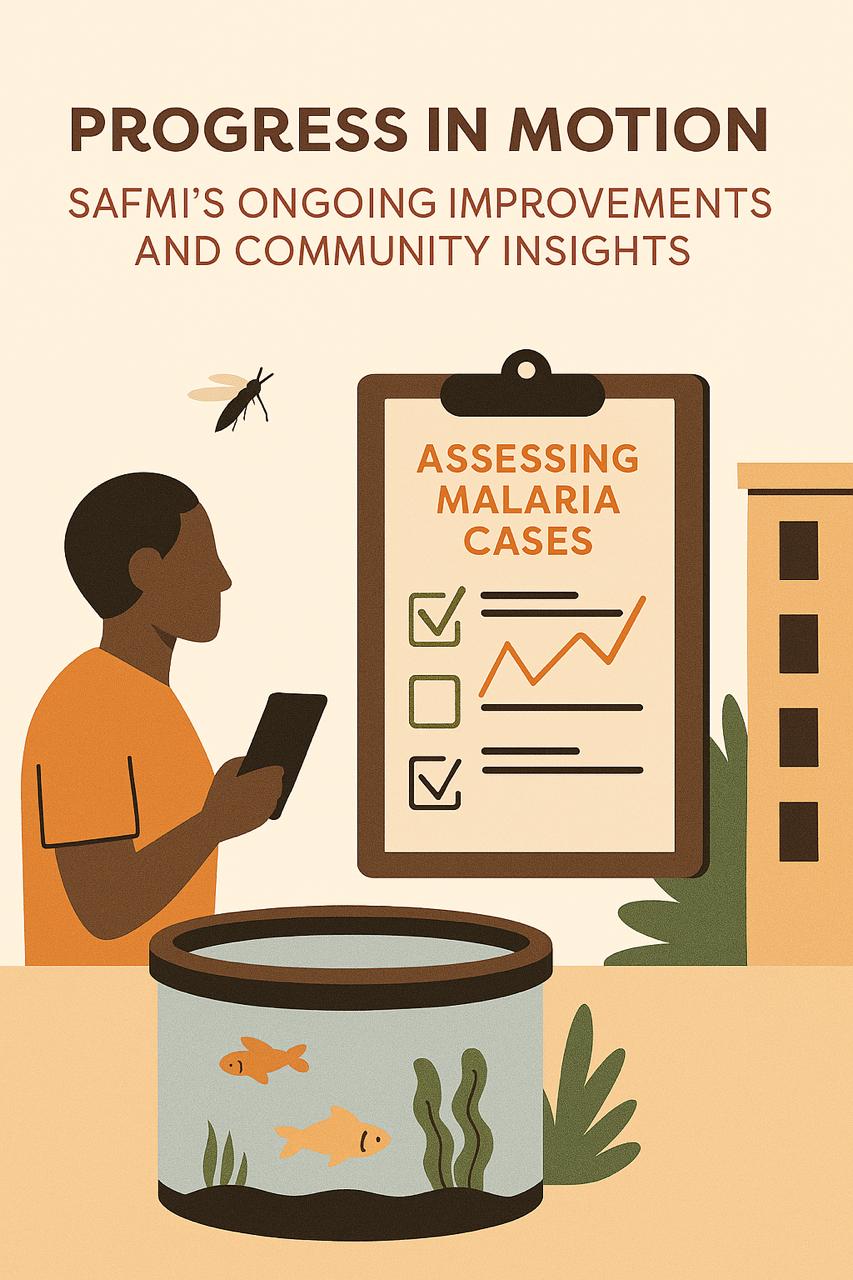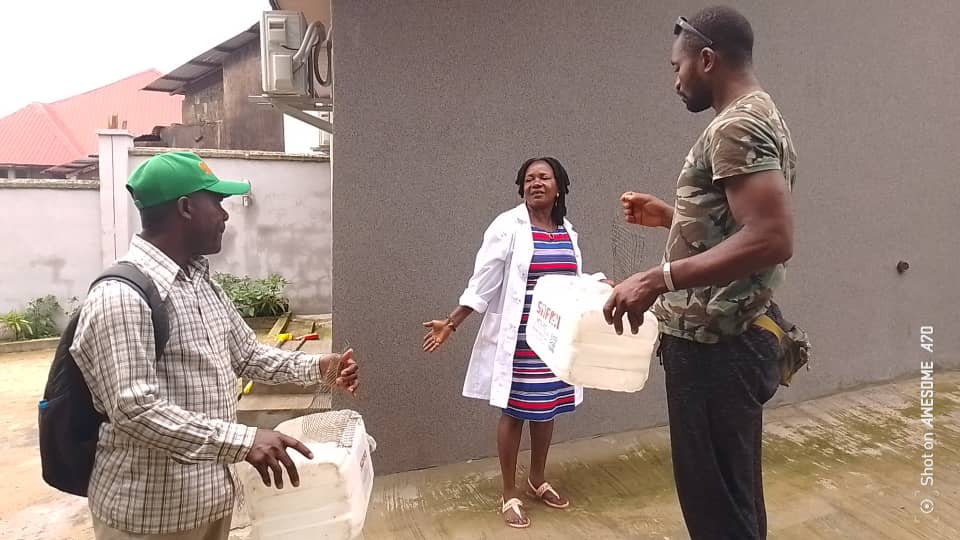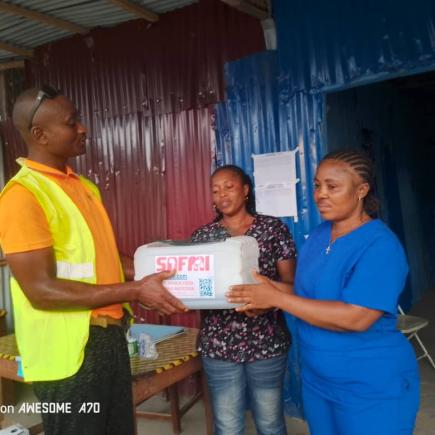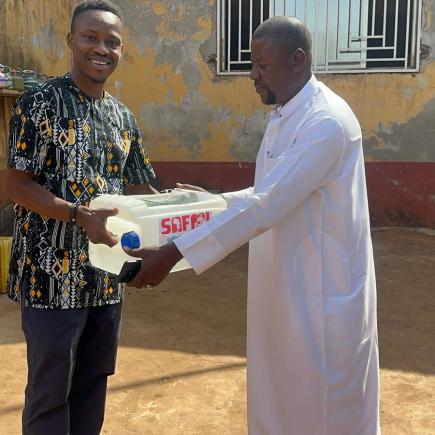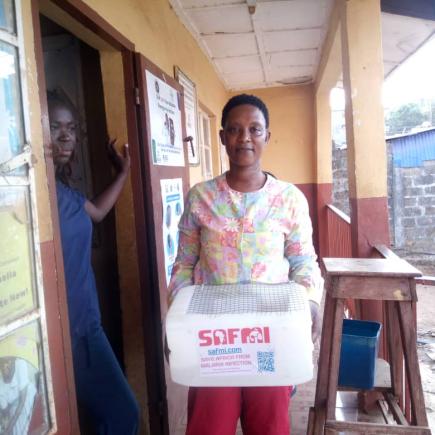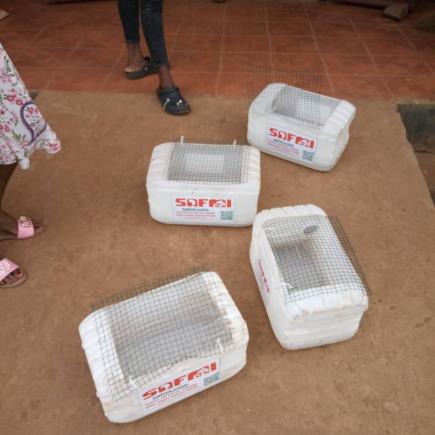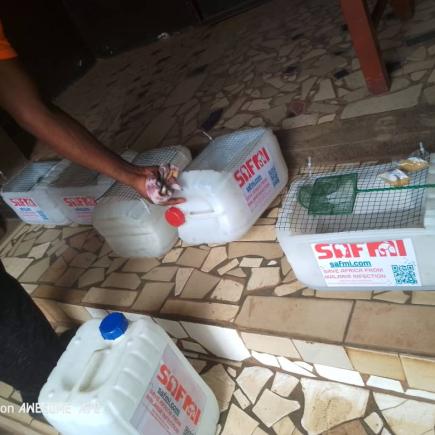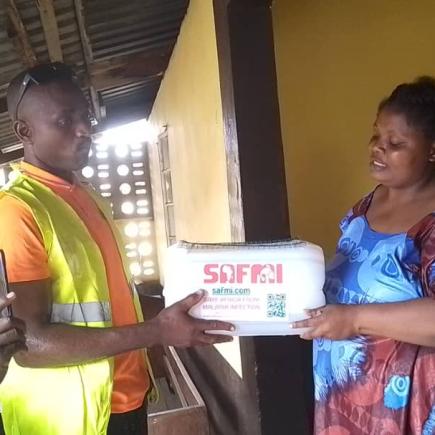In the heart of central Freetown stands the Western Clinic, a small but vital health facility with a deep family legacy. Its current director, a determined and compassionate woman, inherited her mission not just through profession but through lineage. Her parents, pictured on her T-shirt, founded the clinic over 40 years ago, where back in the days she started off as a nurse, and today, she carries her parents’ torch forward with unwavering dedication.
Each day, she meets patients with a range of illnesses—from respiratory issues to chronic conditions, however malaria remains one of the most persistent threats to her patients. "We’re seeing more and more cases," she shares. "Some nights, we don’t even have a bed left for those in need”.
She explains that despite government-issued mosquito nets, prevention remains limited. Hence, many patients, she says, are coming in with secondary malaria infections after being hospitalized for entirely different issues.
The night before Artem Volchenko, CEO of the Save Africa from Malaria Infection (SAFMI) Foundation, visited her clinic, she had been praying for help. Overwhelmed and heartbroken by the growing number of malaria cases, she asked for a sign, for anything that could help her protect patients from this unrelenting illness.
"When Artem arrived the next day with water tanks filled with Gambusia fish, I was speechless," she recounts. "It felt like my prayer had been answered."
The SAFMI initiative introduces a natural, biological method to reduce mosquito populations by attracting them to water tanks filled with gambusia fish, waiting to feed on mosquito larvae. For this director, it represented not only a scientific solution but a lifeline for her patients and a spiritual reassurance that her community was not alone in the battle against malaria.
Her clinic now proudly hosts several SAFMI water tanks and can be found on our interactive map. Each tank is more than just a container—it’s a symbol of hope.
Through this story, we are reminded that the fight against malaria is not only a public health issue but a deeply personal one.
info@safmi.com
+232 72-111-555


.png)
